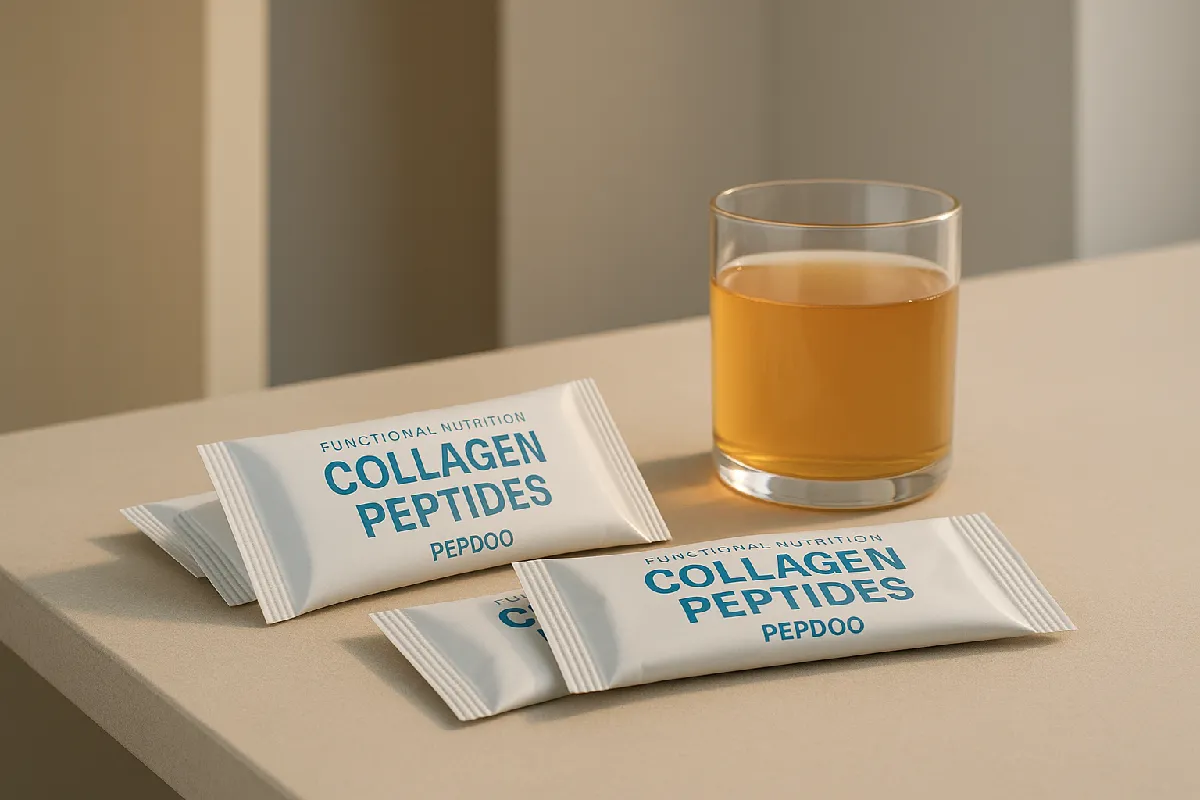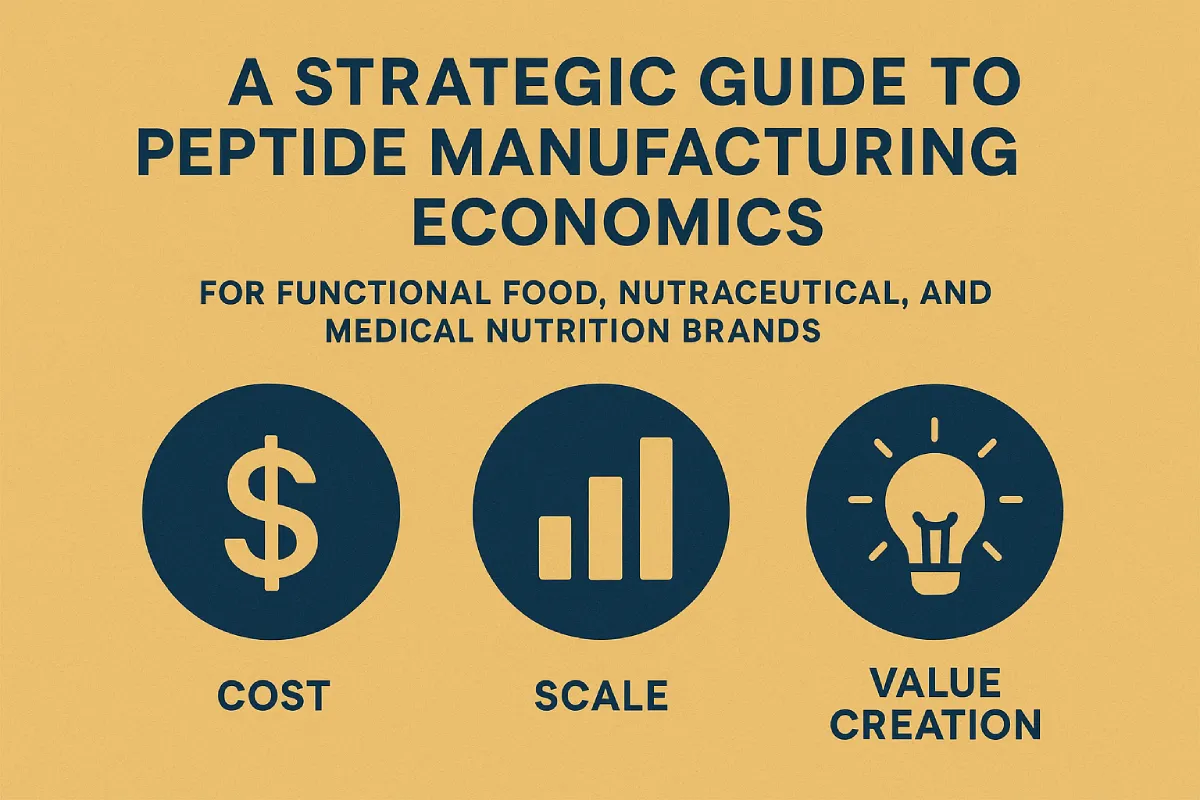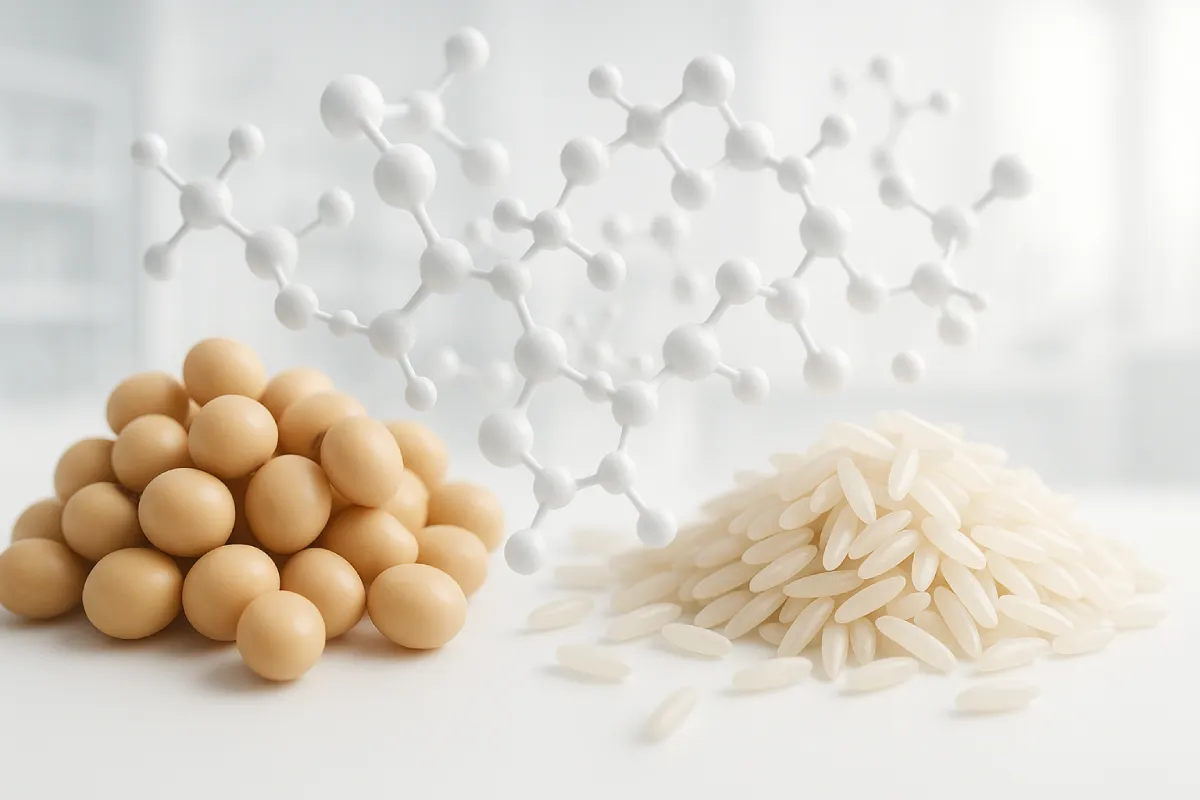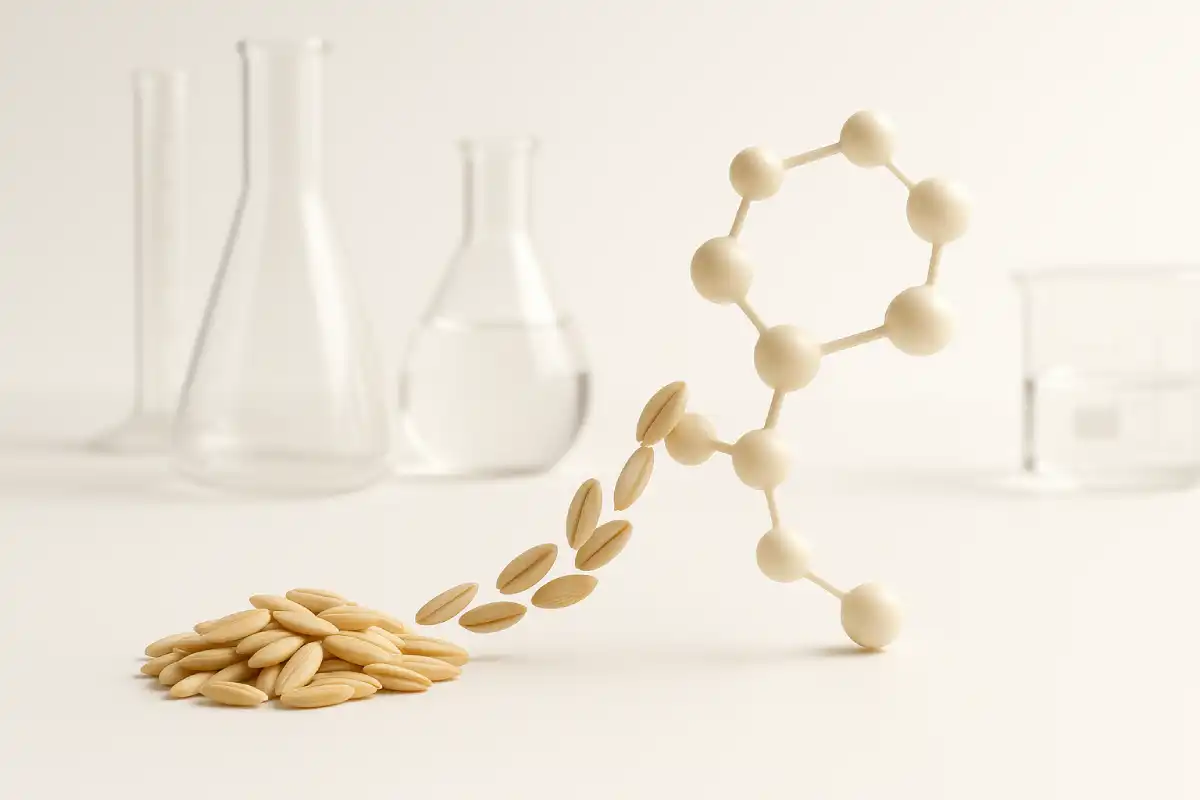Goat Milk Peptides in Sensitive Nutrition
As health and wellness trends shift toward personalization and gut-friendly nutrition, goat milk peptides are gaining recognition as a functional ingredient with unique appeal. Known for their bioavailability, low allergenicity, and superior digestibility, these peptides offer promising applications in infant formulas, elderly nutrition, clinical recovery diets, and sensitive-system supplements. For B2B buyers—including supplement brands, OEM/ODM manufacturers, and R&D leaders—goat milk peptide presents a rare opportunity to deliver high-impact, gentle nutrition supported by clinical science and scalable manufacturing.
What Are Goat Milk Peptides?
Goat milk peptides are bioactive protein fragments derived from enzymatically hydrolyzed goat milk proteins. Through controlled enzymatic processing—using proprietary techniques—these peptides retain specific functionalities such as immune modulation, antioxidant activity, and enhanced absorption [1]. Unlike intact proteins, peptides are partially digested and thus more easily absorbed by the body, particularly in individuals with compromised digestion or sensitive gastrointestinal systems.
At PEPDOO®, we use advanced multi-stage enzymatic hydrolysis to produce goat milk peptides with low molecular weight (<1,000 Da), high solubility, and bioactive integrity. Our manufacturing process ensures consistent quality, minimal allergen presence, and maximum functionality.
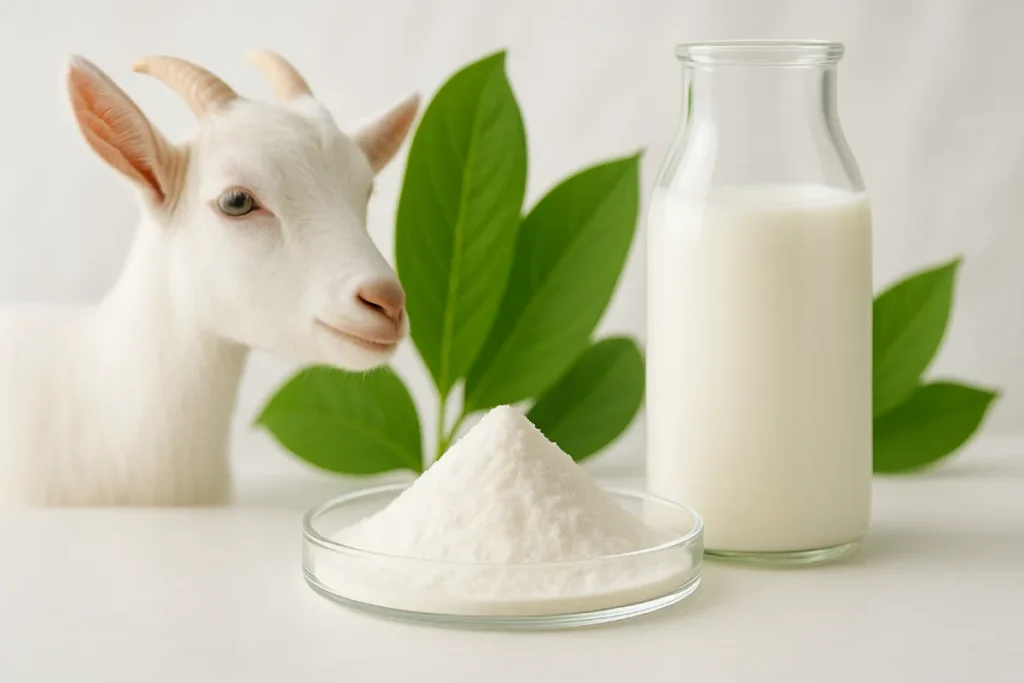
Why Goat Milk? A Nutritional Edge Over Other Proteins
Goat milk has long been considered a more digestible and hypoallergenic alternative to cow milk. This is largely due to its lower αs1-casein content, smaller fat globules, and higher levels of medium-chain fatty acids—all of which make it easier on the gut [2]. When hydrolyzed into peptides, goat milk’s nutritional benefits become even more accessible and potent.
Key Comparative Advantages:
- Lower Allergenicity: Goat milk peptides contain fewer allergenic proteins than bovine peptides, making them ideal for sensitive populations [3].
- Enhanced Digestibility: Goat milk protein is digested faster than cow milk protein, improving absorption rates and reducing gastric discomfort [4].
- Balanced Amino Acid Profile: Maintains essential amino acids necessary for tissue repair, growth, and immune function.
This nutritional profile makes goat milk peptides a high-value ingredient for B2B brands developing next-generation formulations in infant nutrition, senior health, or post-surgical recovery.
Scientific Benefits for Sensitive Populations
Research indicates that goat milk peptides offer a range of functional benefits that support immunity, gut integrity, and systemic recovery. These benefits are particularly relevant for:
- Infants and toddlers
- The elderly
- Individuals with lactose intolerance or dairy sensitivities
- Patients undergoing clinical recovery
Specific bioactivities associated with goat milk peptides include:
- Immune modulation: Certain peptide sequences can stimulate or regulate immune responses [5].
- Anti-inflammatory effects: Goat milk peptides can reduce inflammatory cytokines and support gut barrier function [6].
- Calcium-binding capacity: Enhances mineral bioavailability, especially critical in bone health for elderly nutrition [7].
These clinically relevant functionalities are being explored in both preclinical and human studies, reinforcing the market potential for goat milk peptide-based products.
Functional Applications in B2B Formulations
Goat milk peptides are highly versatile and compatible with various delivery systems. For brands developing functional food and supplement products, these peptides can be used in:
- Infant and toddler formula
- Gastrointestinal support powders
- Immunonutrition beverages
- Recovery formulas for post-surgical patients
- High-end RTD (ready-to-drink) dairy or non-dairy beverages
PEPDOO® offers a wide range of formulation supports including:
- Custom peptide profiles (targeting specific MW ranges or functionalities)
- Compatibility testing with flavor carriers, vitamins, and probiotics
- OEM/ODM support for powders, capsules, sachets, and RTDs
With increasing demand for clean-label, gentle-nutrition products, goat milk peptide is a powerful differentiator for B2B companies targeting premium segments.
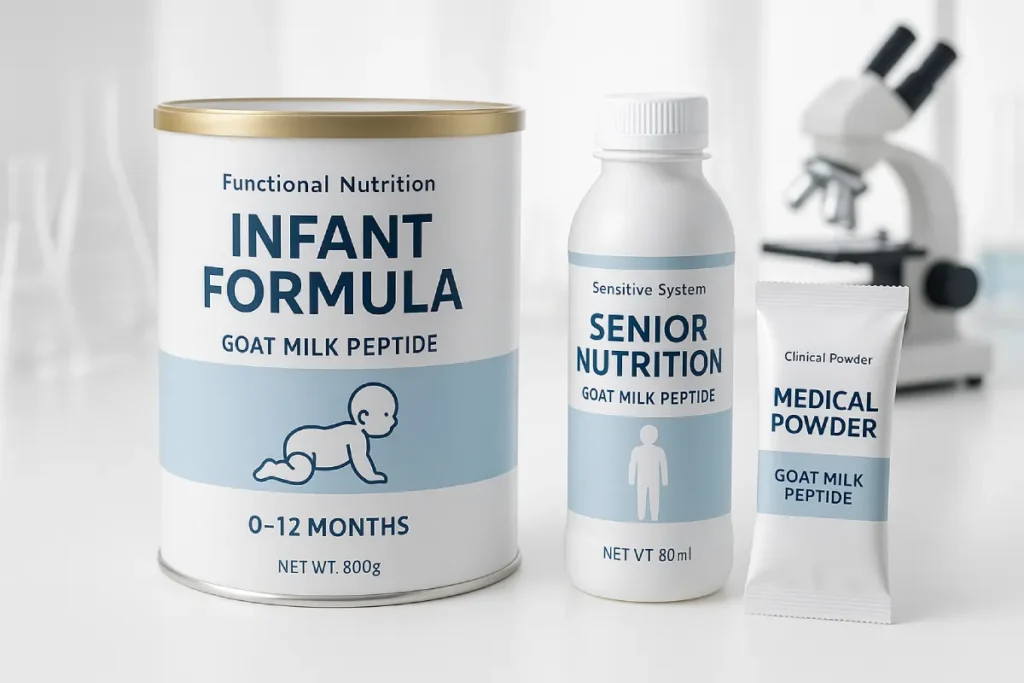
Comparison with Bovine and Plant-Based Peptides
B2B buyers often compare goat milk peptides with bovine collagen, whey peptides, or plant-based peptides like soy or pea. Each has its strengths, but goat milk peptides offer a unique blend of hypoallergenic and functional advantages:
| Attribute | Goat Milk Peptides | Bovine Peptides | Plant-Based Peptides |
|---|---|---|---|
| Allergenicity | Low | Moderate–High | Low |
| Digestibility | High | Moderate | Varies |
| Flavor Profile | Mild | Strong/meaty | Beany/earthy |
| Application Fit | Sensitive/Gut Health | Joint/Beauty | General nutrition |
| Target Market | Infant, Elderly, Clinical | Sports, Beauty | Mass-market/Vegetarian |
For brands seeking to serve consumers with dietary sensitivities or requiring gentle nutrition, goat milk peptides offer a more targeted functional solution.
The Source Matters: Why Work with a Trusted Peptide Manufacturer
When it comes to functional ingredients, quality, traceability, and scalability are non-negotiable. As a source manufacturer, PEPDOO® controls the entire supply chain—from goat milk sourcing and enzymatic hydrolysis to spray drying and final QA inspection.
PEPDOO® Manufacturing Advantages:
- Dedicated dairy peptide production lines (goat and bovine)
- ISO22000, HACCP, GMP, and Halal certified facilities
- Custom production (molecular weight, purity, carrier options)
- Export documentation and regulatory support (including FSMP dossiers, health food claims)
B2B partners benefit from consistent supply, reliable documentation, and a science-driven development process that ensures competitive differentiation in the global market.

Case Study: Goat Milk Peptide in Infant Immune Nutrition
One of our clients—a leading infant formula brand—wanted to develop a premium goat milk-based product for immune support. By using PEPDOO®’s low-molecular-weight goat milk peptides enriched in immunoactive fractions, they achieved:
- Improved solubility and formula stability
- Clear functional claim support (immune modulation and digestibility)
- Lower allergen risk, making it suitable for broader infant populations
This successful project highlights the value of working with a source manufacturer with proven formulation experience.
Conclusion: Build the Future of Gentle Nutrition
As global consumers become more health-conscious and ingredient-savvy, B2B companies must stay ahead with differentiated, clinically relevant ingredients. Goat milk peptides offer a strategic solution for brands formulating for sensitive systems, offering clean-label functionality backed by science.
PEPDOO® is proud to be your global source manufacturer of goat milk peptides, delivering:
- Clinically supported, gentle peptide nutrition
- Customizable, scalable manufacturing
- Full documentation and regulatory support
- OEM/ODM flexibility for fast product innovation
Partner with a Trusted Goat Milk Peptide Manufacturer
PEPDOO® delivers patented, clinically validated goat milk peptide ingredients designed for sensitive nutrition markets. From OEM/ODM support to regulatory documentation—we help you build better products, faster.
📩 Request Samples or Schedule a ConsultationFAQ
They contain trace amounts of lactose, usually <0.1%, depending on processing. For lactose-free needs, we can provide low-lactose versions.
Yes. We offer R&D samples (typically 100–200g) and technical support.
Absolutely. Our goat milk peptides are non-GMO, clean-label compliant, and Halal certified.
Yes. We offer MW profiles from 300–1,000 Da for different bioactivities.

References
- Park, Y. W. (2006). Goat milk—chemistry and nutrition. Handbook of Milk of Non-Bovine Mammals, 34–58. Wiley-Blackwell.
- Haenlein, G. F. W. (2004). Goat milk in human nutrition. Small Ruminant Research, 51(2), 155–163.
- El-Agamy, E. I. (2007). The challenge of cow milk protein allergy. Small Ruminant Research, 68(1–2), 64–72.
- Zhou, L., et al. (2020). Comparative digestion kinetics of goat milk and cow milk proteins in simulated infant gastrointestinal conditions. Food Chemistry, 316, 126328.
- Uenishi, H., et al. (2014). Immunomodulatory effects of milk-derived peptides. Food Science and Technology Research, 20(3), 497–506.
- Li, H., et al. (2021). Anti-inflammatory effects of goat milk peptides in colitis mice. Nutrients, 13(2), 439.
- Chatterton, D. E. W., et al. (2006). Bioactive peptides from milk proteins. British Journal of Nutrition, 96(4), 681–688.


